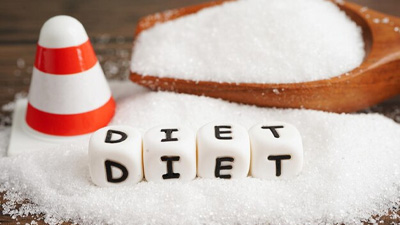
Embarking on a low salt diet can significantly improve your overall health, particularly if you are managing conditions like high blood pressure or heart disease. However, before you drastically reduce your salt intake, there are a few important things to consider to ensure you're doing it right and staying healthy.
Table of Content:-
Things to Know Before Starting a Low Salt Diet
1. Understand Sodium Sources
Salt is the primary source of sodium in our diets. While it's easy to assume that avoiding the salt shaker is enough, many processed and restaurant foods are laden with hidden sodium. Canned soups, processed meats, and even some breakfast cereals can be surprisingly high in sodium. Reading food labels and understanding where sodium hides is crucial.
2. Consult a Healthcare Professional
Before making significant dietary changes, especially if you have underlying health conditions, consult your healthcare provider or a registered dietitian. They can provide personalised advice tailored to your health needs and help you set realistic sodium goals.

Also Read: Esha Gupta Setting Fitness Goals with Next-Level Squat Routine
3. Focus on Whole Foods
The best way to reduce sodium is to cook at home using fresh, whole ingredients. Fruits, vegetables, whole grains, lean proteins, and fresh herbs can add flavor to your meals without the need for excessive salt. Experimenting with various herbs and spices can enhance the taste of your dishes naturally.
4. Be Mindful of Hidden Sodium
Many condiments and sauces, such as soy sauce, ketchup, and salad dressings, contain high levels of sodium. Opt for low-sodium or sodium-free alternatives, or better yet, make your own sauces at home where you can control the sodium content.

Also Read: Esha Gupta Setting Fitness Goals with Next-Level Squat Routine
5. Monitor Your Progress
Regularly monitor your sodium intake and its effects on your health. Keep a food diary, noting the sodium content of the foods you consume. Tracking your progress can help you stay on course and make necessary adjustments to your diet.
6. Stay Hydrated
Increasing your water intake can help flush excess sodium from your body. Adequate hydration is essential, especially when you're reducing sodium, as it helps maintain a healthy balance of electrolytes.
By being aware of these key points, you can embark on a low salt diet journey that is well-informed and sustainable. Remember, small, gradual changes often lead to the most significant and lasting improvements in your health.
Also watch this video
How we keep this article up to date:
We work with experts and keep a close eye on the latest in health and wellness. Whenever there is a new research or helpful information, we update our articles with accurate and useful advice.
Current Version